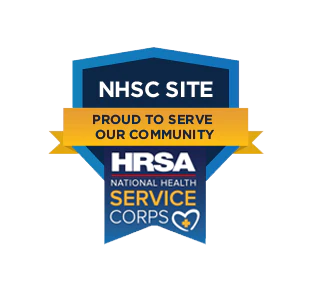
This blog post was written by Miller D. Knight Jr., LPC, Behavioral Health Director at the Beloit Area Community Health Center.
Emotional and psychological trauma is the result of extreme stressful events that makes us feel in danger for our safety or the safety of others. It can be events that we experience directly or indirectly but can’t “wrap our minds around” and takes a while to get over the pain that they cause us.
These events because our safety or the safety of others are involved will shatter our sense of security, happiness, etc. leaving us feeling numb, disconnected, and in some cases panicked by the world around us.
Causes of trauma
Trauma can be caused by:
- One time events; such as an accident or a violent attack, or anything unexpected.
- Ongoing, relentless stress; such as living in a crime ridden neighborhood, being the victim or witness to domestic violence, childhood physical or sexual abuse, or childhood neglect.
- Commonly overlook causes; the sudden death of a loved one, breakups in relationships, humiliating or disappointing events, etc.
Symptoms of Psychological Trauma
Everyone experiences trauma in different ways. Where some events affect some people, it may not bother others.
How a person experiences trauma is not a sign of strength or weakness. There is no “right or wrong” way to experience or think, feel, or respond to traumatic experiences.
Emotional & Psychological symptoms:
- Shock, denial, or disbelief
- Confusion, difficulty concentrating
- Anger, irritability, mood swings
- Anxiety and fear
- Guilt, shame, self-blame
- Withdrawing from others
- Feeling sad or hopeless
Physical symptoms:
- Insomnia or nightmares
- Fatigue
- Being startled easily
- Difficulty concentrating
- Racing Heartbeat
- Edginess and agitation
- Aches and pains
- Muscle tension
Healing from Trauma
Trauma symptomology that don’t ease up can lead to Post Traumatic Stress Disorder. While the emotional response to trauma is normal, when your nervous system gets “stuck” that creates maladaptive processing of your memories that leads to PTSD.
Some suggestions for recovering from trauma include:
- Try to exercise for 30 minutes or more on most days.
- Exercise that is rhythmic and engages both your arms and legs.
- Add a mindfulness element. Practice an exercise to distract you from you negative thinking. Relaxation exercise. Rhythmic breathing.
- Don’t isolate.
Self-regulate your nervous system:
- Mindfulness breathing
- Sensory input-listening to music, petting an animal, other things that use your senses.
- Staying grounded. Exercises that distract you and keep you in the here and now.
- Allow yourself to feel what you feel.
- Take care of your health.
Seek a professional. Psychotherapists are training to help you process maladaptive processing of memories through Eye Movement Desensitization Reprocessing (EMDR) or Prolonged Exposure Therapy.













